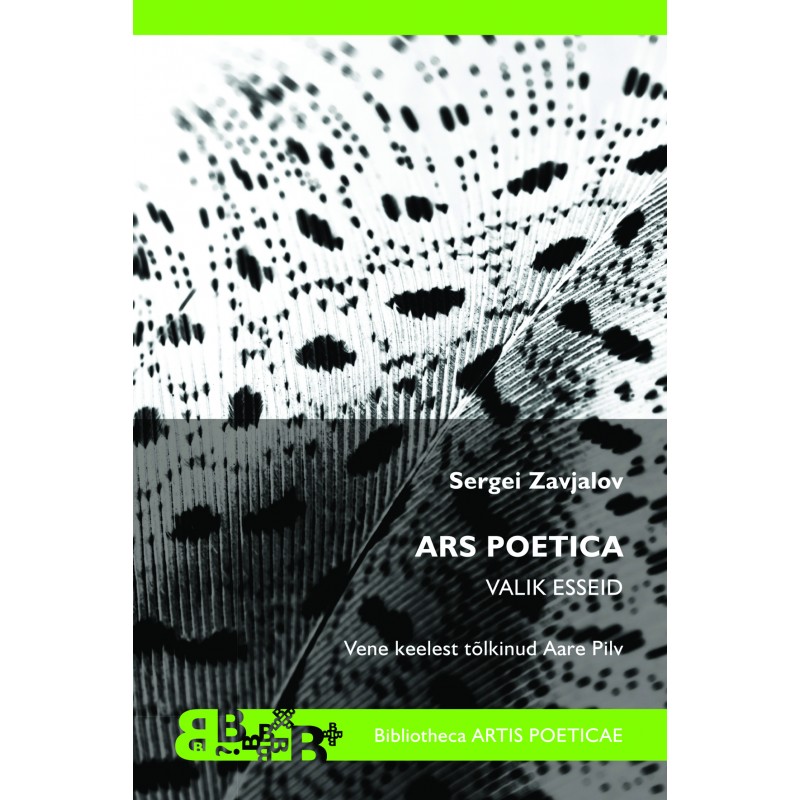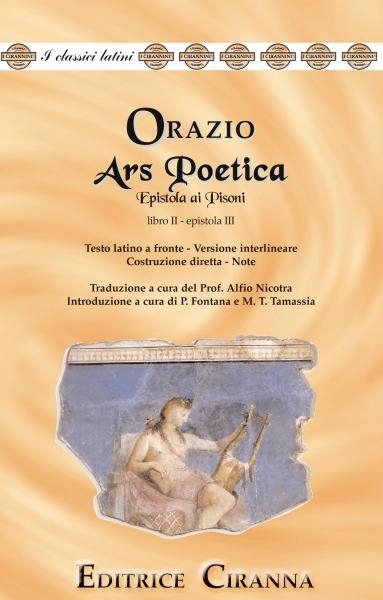
Indeed, practicing poets have long discerned what many literary scholars have not: that the poem's value lies not so much in its stated contents as in its fine-spun internal unity in its interest in human nature and the onward march of time in the importance of criticism-both giving and receiving it-to the artistic process and in the essential sameness of writing, of making art, and of living, loving, being, and even dying. If the Ars Poetica's poetic qualities have not always been clear to scholars of literature, they seem to have been more evident to the practicing writers who, inspired by Horace's poem, wrote artes poeticae of their own. poetry is not a luxury.This epilogue traces the themes and concerns of the previous chapters throughout the Ars Poetica's considerable reception history. It lays the foundations for a future of change, a bridge across our fears of what has never been before. is the skeleton architecture of our lives. Poetry is language at its most distilled and most powerful. P oetry is an echo, asking a shadow to dance. P oetry is the special medium of spiritual crazy wisdom, the form of expression that comes closest to creating a bridge between words and what is wordless. T he courage of the poets is to keep ajar the door that leads into madness. P oetry should be great and unobtrusive, a thing which enters into one's soul, and does not startle it or amaze it with itself, but with its subject. It's that time of night, lying in bed, thinking what you really think, making the private world public, that's what the poet does. P oetry is not an expression of the party line. P oetry is a way of taking life by the throat. Poetry is a phantom script telling how rainbows are made and why they go away. Poetry is a search for syllables to shoot at the barriers of the unknown and the unknowable. P oetry is the journal of the sea animal living on land, wanting to fly in the air. P oets are soldiers that liberate words from the steadfast possession of definition. T he poet is a liar who always speaks the truth.

Imaginary gardens with real toads in them. You compose first, then you listen for the reverberation. T he writing of a poem is like a child throwing stones into a mineshaft.
#ARS POETICA RITA DOVE SKIN#
P oetry is boned with ideas, nerved and blooded with emotions, all held together by the delicate, tough skin of words. P oetry must have something in it that is barbaric, vast and wild. I f I feel physically as if the top of my head were taken off, I know that is poetry. It lays bare, under a light which shakes off torpor, the surprising things which surround us and which our senses record mechanically. It unveils, in the strict sense of the word. Notice how these writers return again and again to the concrete in order to make their point pay attention! She realized that the friend’s comments about a horse being “broken” or tamed could be applied to the writing or “taming” of a wild poem! She uses that metaphor throughout the poem, subtly comparing the hard, tedious, gentle work of breaking a horse with the hard, tedious, gentle work of “conquering” or capturing the wild words of a poem, getting them to settle down and BE a poem. In Maxine Kumin’s “Ars Poetica: A Found Poem” she uses a note left for her by a friend as her jumping off place.

Great way to express what isn’t really expressible!ĭ. She does this several times, trying to find a way to describe what she thinks poetry is.


Ethna McKiernan, too, names her purpose in her title (“Beginning to Name It: Poetry”), then just starts her metaphor as “It is the strange vegetable/that grows outside the garden” and goes from there, expanding the metaphor for awhile, then switching to another metaphor, “It is the mystery scientists/ spend late-night hours researching” and takes off again. William Stafford contradicts the old staying that art must come from suffering to prove his point (stated only in his title), he imagines writing a poem to be like climbing a mountain – it takes self-motivation, the desire to work hard, and willingness not to wait for inspiration, but to MAKE a way, make a trail. Al Zolynas says poetry is “a pile of clothes on an empty beach at dawn” and our job as readers is to investigate that pile of clothes, try to extrapolate who wore them, what they mean.ī. You will understand ars poetica much better once you’ve read the poems in SM (they start on page 20) read them all a few times, see how the poets are painting you a picture of “what poetry is” by saying “Poetry is …” or “reading poetry is like …” As marginalia, try to write a brief summary of what you think each poet tries to communicate.Ī. However, it is almost irresistible for poets to try and describe what it is about poetry that is so compelling, and writing an ars poetica is almost a rite of passage. Some people consider this an exercise in navel-gazing gone terribly wrong.


 0 kommentar(er)
0 kommentar(er)
